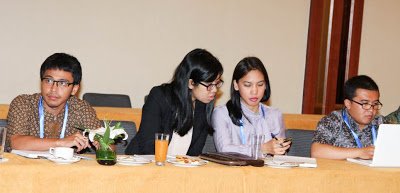Youth Voice on the Post-2015 Development Agenda
Andhyta Firselly Utami and Kania Muksin
represented G20 Youth Indonesia. Photo credit: UKP4
A scenario where youth demands to be heard by the government might be commonplace for some people, but how about a scenario where the government actually invited youth as part of a consultation process? Last Thursday, G20 Youth Indonesia took part in the National Consultation Meeting on the Post-2015 Development Agenda, organized by the Indonesian Presidential Delivery Unit (UKP4). Kania Kintani Muksin and I represented youth constituents and we voiced our ideas on the most pressing issues that should be considered in the new development agenda. This agenda, steered by a “high-level panel” consisting of the Indonesian President among others, aims to replace the UN MillenniumDevelopment Goals (MDG) which expires in 2015. Along with other passionate advocates of different causes, we collaborated with individuals from sectors as diverse as the government, civil society organizations, the private sector as well as academia.
Kuntoro Mangkusubroto. Head of Presidential Delivery Unit and Task Force on the Post-2015 Development Agenda. Photo credit: UKP4
The day commenced with introductory remarks about the key points for the discussions. The recommendations had to be ‘ambitious, solid, and relevant’ compared to the current Millennium Development Goals, the opening speaker said. The concept “good governance” is not the end goal, but it is the means to achieve the bigger vision of the post-2015 development agenda.
Among others, Kania and I managed to bring up the issue of energy efficiency, sustainability, and accessibility. In the short and medium-term, today’s youth will be very affected by the availability of energy. I believe that it has to be one of the government’s top priorities. In our discussion, Kania—who works in the energy sector— suggested how youth could play a bigger role by being more aware about their energy consumption and push for more energy-efficient policies.
Another concern that we voiced was the case of youth refugees. Despite the progress on education and health talks, our brothers and sisters in the refugee camps (both from conflicts or natural disasters), are often still out of the picture. They might have the potential as future leaders—but lost hope because their homes and lives have been taken away from them. The post-2015 development agenda has to take extra attention to the vulnerable and marginalized groups including youth refugees.
Candid picture of our presentation. Photo credit: UKP4
After 120 minutes of parallel discussions, each group (government, private sector, academia, civil society, and youth) was given 10 to 15 minutes to present their recommendations. I was honored to present on behalf of the youth group together with Dimas Sandya Sulistio (IndonesiaMengajar) and Iwa (Forum Anak Kalimantan Barat). We received many positive feedbacks to our ideas—some compliments were given from the floor, while some non-youth participants actually approached me to discuss several ideas.
At the end of the day it was a great experience participating in this consultation process on behalf of Indonesian young leaders. I agree with Kuntoro Mangkusubroto (Head of President's Delivery Unit), who said that the post-2015 development agenda could only be inclusive if everyone participates. You should, too. Start by downloading the document on youth recommendations here (in Bahasa Indonesia only). Have a great day!
Andhyta Firselly Utami is the Head of State for the Indonesian delegation to the 2013 Y20 Summit.



